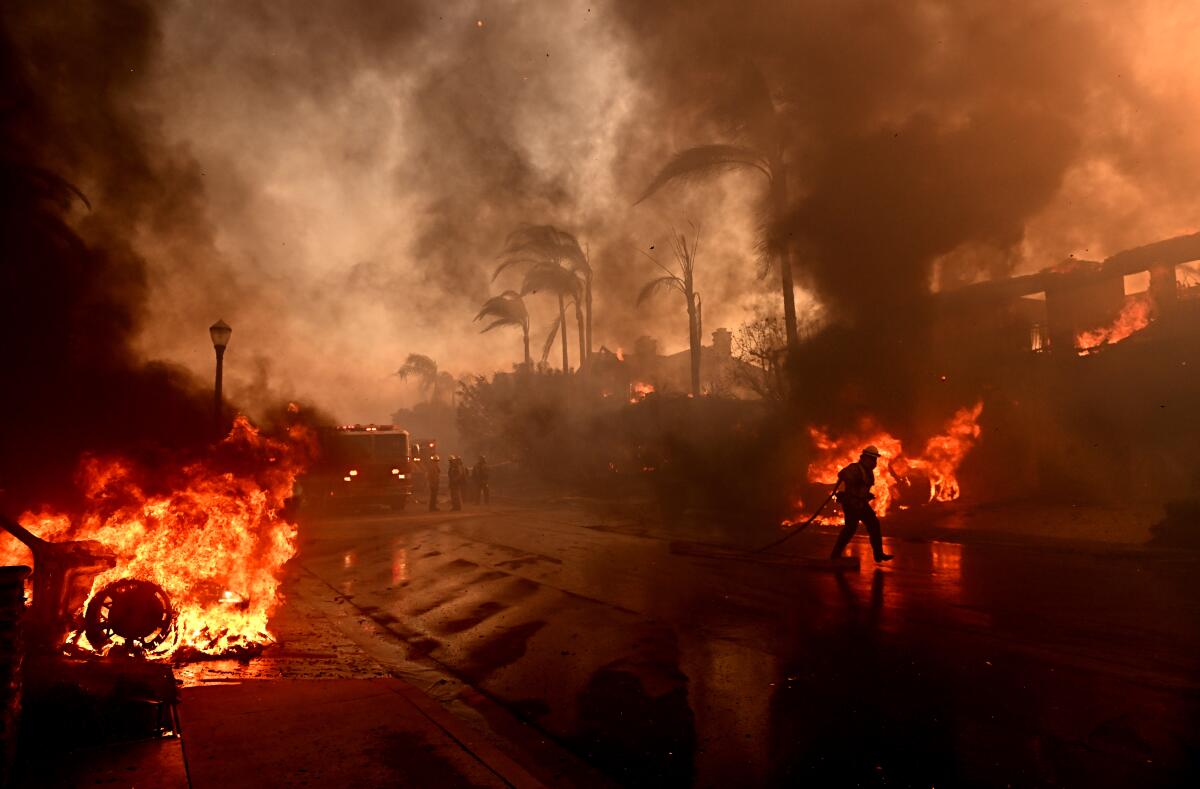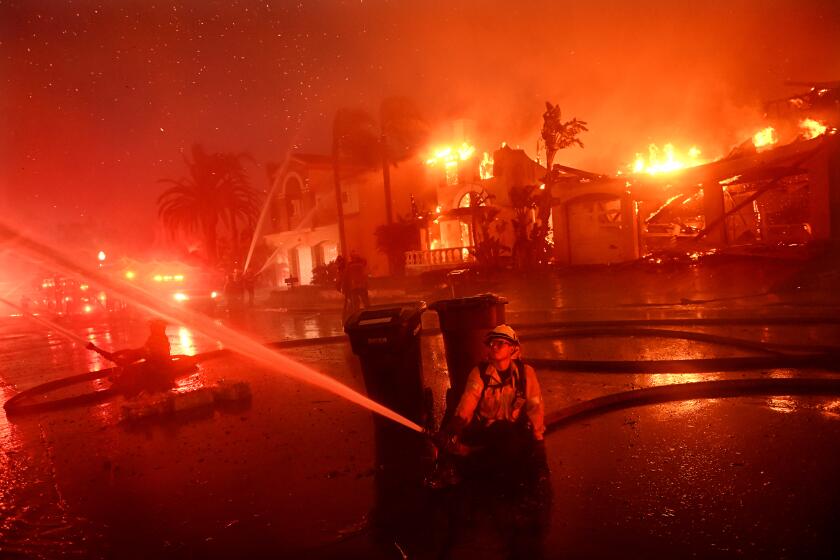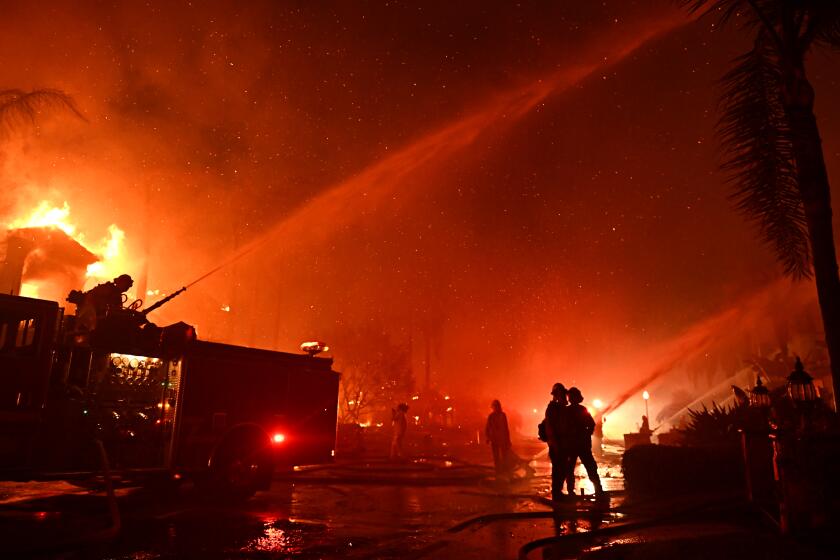How cold winds, a turbocharged fire and huge homes led to destruction in Laguna Niguel

The temperatures were cool when the Coastal fire stormed into a community of huge ocean-view homes in Laguna Niguel.
But the fierce winds from the Pacific Ocean were enough to cause destruction as the fire ate through terrain dried by heat and climate change.
“It’s so heartbreaking,” said Supervisor Lisa Bartlett, whose district includes Laguna Niguel. “It started as three to five acres, and then it went to 40 acres in like a millisecond and went out of control from there.”
The wind has been one factor in the spread, but the size of the homes has also made containing the blaze difficult, Bartlett said.
Driven by winds from the ocean, the Coastal fire roared into an Orange County subdivision, destroying 20-plus homes, authorities said.
“When you take a look at the size of the homes, there’s just so much combustible material that they burn fast, and then the wind starts and the flames can just leap from house to house,” Bartlett said. “We’re hoping as the evening hours approach that the winds will die down and the firefighters can really get in there and do their work.”
“The visibility is not great with the winds, but I know our firefighters are doing virtually everything they can on the ground and from the air,” she added.
An estimated 20 homes — perhaps more — were destroyed. Firefighters were battling to prevent more homes from going up in flames.
Climate change
Orange County Fire Authority Chief Brian Fennessy said the destruction underscored the year-round danger of fires in Southern California, even in cool conditions.
“It’s sad to say that we’re getting kind of used to this,” Fennessy said. “The winds we experienced today are normal winds. ... We’re seeing spread in ways we haven’t before. Fire is spreading very quickly into this very dry vegetation and taking off.”
Persistent drought conditions in California and across the western United States have left vegetation so dry that it doesn’t take much for the fuels to ignite, Fennessy said.
The fire wasn’t ignited or fanned by the notoriously dry and hot Santa Ana winds from the desert.
In fact, the National Weather Service recorded strong winds from the Pacific Ocean throughout Wednesday afternoon across Orange County, including gusts as high as 30 mph in parts of the county, according to Brandt Maxwell, a weather service meteorologist in San Diego.
As firefighters battled to save homes in the Coronado Pointe neighborhood, fleeing residents wondered whether theirs had survived.
However, the winds blew in with a dry air mass and didn’t carry much moisture, and humidity remained low, which likely assisted in the fire’s spread, Brandt said.
Drought conditions
Vegetation across the county had already seen little rainfall. Between October and April, Southern California’s rainy season, less than 7 inches of rain fell at nearby John Wayne Airport, nearly 40% less than normal levels, Brandt said.
And the previous year, the area was even drier, with less than 4 ½ inches.
“I guess it’s just disheartening that we’re already seeing a fire that’s this aggressive and it’s only May. Usually this is something that we see later on in the summer and especially in fall,” Maxwell added.
Bartlett said residents who live near the fire area but have not yet been evacuated should gather their belongings and be ready to leave their homes quickly if directed.
The winds pushed the fire into the Coronado Pointe neighborhood so fast that residents fled without having time to grab many items, she said.
“People really need to heed that message, because it’s so difficult for firefighters when they’re trying to put out fires and also save people who have stayed in their houses when they should have gone,” Bartlett said. “The last thing we want is for anybody to have their life in danger.”
More to Read
Sign up for Essential California
The most important California stories and recommendations in your inbox every morning.
You may occasionally receive promotional content from the Los Angeles Times.














